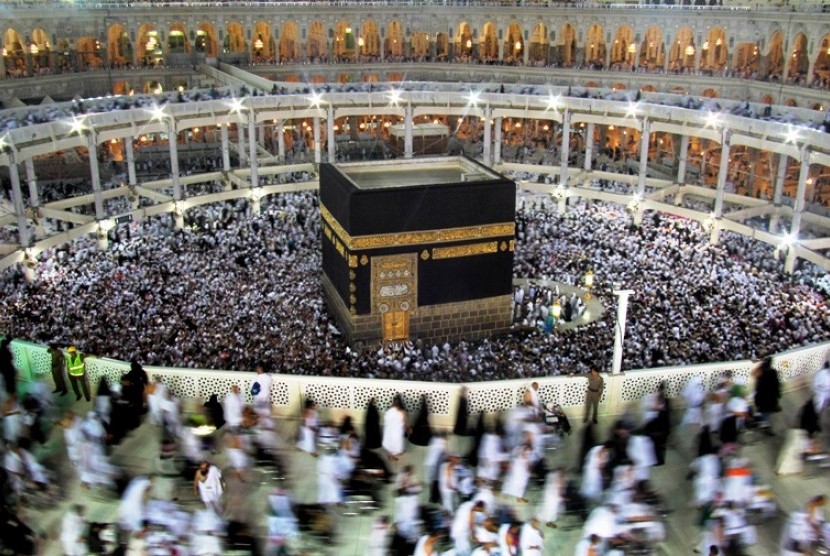REPUBLIKA.CO.ID, By: Nashih Nashrullah*
It was never imagined before, when the use of the word 'minority' non-Muslims in Islamic political studies, will be as complex as this. Initially, the minorities’ term I mean and perceive was no more than a small group of other faiths who are in the midst of a Muslim majority. But, it turns out this word has implication in term of law.
The history of Islamic civilization, never use the word 'minority' to refer and to classify the followers of other religions who live in the territory of the Islamic state. The origin of the word itself, emerged in the Middle Ages, approximately on 15th century AD, and used by Western society. French people pronounce "Minorite", while the Latin sounding the "minor."
Using the word minority, meaning there is domination of the majority, in fact, it was not rare that discriminatory treatment would trigger a reaction of protest and resistance from groups that are categorized as small groups. This interaction patterns will certainly lead to political instability and security in a country.
Imposing the application of the word minority, especially after the collapse of Islam under Ottoman rule, later also sparked a new problem. It is accompanied by 'forcing' a Western conception of human rights which are often ambiguous. Islam does not recognize the word minority.
The boundaries of tribe and ethnicity were melted, so that there is no term-based tribal minorities. Moreover, if the non-religious minority tribes or ethnic-based, as long as they are Muslims, then there is no minority or majority, only Muslims. Meanwhile, when it comes to a small group of non-Muslims, Islam uses 'ahludz dzimmah'.
Ahludz dzimma, are followers of a religion other than Islam (non-Muslims) in the Islamic state. They have a guarantee of God's covenant and His Messenger and all Muslims to live safe and secure under the protection of Islam and the Muslim community. They acquired the rights and obligations as citizens.
In the era of post colonialism, and the collapse of the hegemony of Islam, the terms of ahludz dhimma, faced discourse and debate in a number of Islamic countries. The new world order, it is possible the existence of the Muslim population in the countries of the non-Muslim majority.
This condition, are directly implicated in the implementation of the terms of political fiqh of Islam that never applies on that time, such as dar al-Islam, dar al-Kufr, dar al-'ahd wa ash-shulhi, and dar al-Harb. In classic example of jurisprudence, Gap is opening a new ijtihad ideas or products that are more flexible.
Pakistan, for example, after a deep study, finally when in 1949 decided to annul the clause the obligation to pay an annual tax on the soul (jizya) on non-Muslims living in Islamic countries. Their reasons are quite logical, if the obligation imposed; the local authorities was concerned about the spark of similar treatment and may be hard on Muslims who live in countries of non-Muslim majority.
At the same time, it was not accompanied by the commitment of the West to respect the policy of the Islamic countries toward the 'minority' of non-Muslims. Excessive intervention and lobbying should not be done; in fact it showed the inconsistency over the terms of minority itself. Cases of Coptic Christians in Egypt and Christians Darfur and the demands for Saudi Arabia, to build a church in Mecca, proof how strong the hands of the West against the 'imposition of a minority'.
On the other hand, the coverage term of 'minority' is undergoing expansion, despite the fact that bumping into the limits of sharia. It also confirms a significant difference on the conception of individual rights between the West and Islam. Islam does not recognize absolute freedom which is irresponsible. Such rights must remain in the corridor syar'i. As for the West, the individual owner the absolute right and must obtain that right, regardless of the form and how to obtain it.
Splinter groups outside the mainstream, was forced to be categorized into the minority term, but as an affirmation of the above, as long as they still say syahadat and are Muslim as well as living together with the Muslim majority, then they are not a minority.
According to the perspective of Imam Abd al-Qahir al-Jurjani; the extreme sect of Islam, outside the mainstream sects, was worthy to be called heretical or apostate in a particular level. Imam al-Khatib al-Baghdadi, detailing that anyone who claims to say syahadat, but in practice follow the beliefs and rituals that opposite with Islamic principles, then they are basically the people who come out of religion.
Even Imam as-Syathibi, offering not to be too hasty put a 'minority' in a category of the heretics or apostate, simply use paradigms and methods of fiqh differences. Effective escort duties were assumed by the state creed must be reinforced with a true understanding of glorious and Islam truthfulness.
With reference to the substance of sharia (islamic maqashid), wise attitude towards 'minority' sects is far more beneficial, rather than 'punishing' them. Because, according to the author of the monumental book in Usul Fiqh al-Muwafaqat field, it was not unlikely to invite intervention from outside the country who threatens the stability of the Islamic state.
It was nothing wrong if there was emerging desire to seek an ideal format of Jurisprudence for minorities in Islamic countries, so that we are courageous and able to act against the minority discourse that became one of the main topics in the vortex of a new world order at this time. Hopefully!
*Translated by; Idealisa Masyrafina



